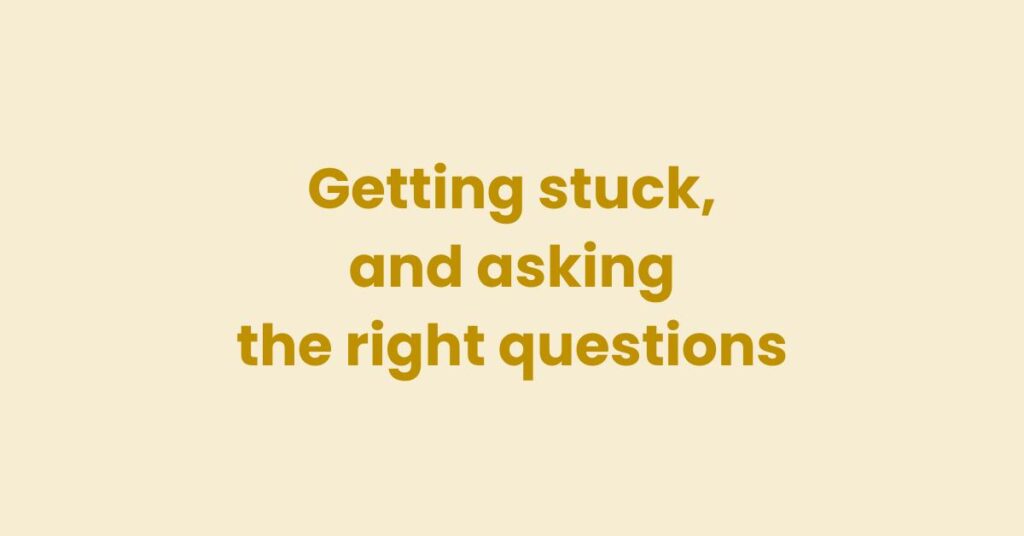
Today I want to share something that is so evident, so simple, yet it took me years to realise:
Writing is easier with a plan.
I know, sounds obvious, right? Most things are easier when you plan first. Yet it took me years to understand the implications of this.
The first the time I started to have an inkling that I should, in fact, plan, was on a dreary
Wednesday afternoon, four years ago. I’d been staring at my mangrove seedling paper for over a week, and couldn’t figure out what to do.
It was almost finished (or so I thought). Well-written, nicely formatted, and the figures were
excellent. It was ready! But my supervisors did not agree. Instead, they’d left a couple of tricky comments on my Discussion. And I couldn’t make sense of them.
It was frustrating😤. Why couldn’t my supervisors just agree it was a decent paper?
In hindsight, they were right. The discussion was lacking depth. In fact, every time I looked at it I felt immense boredom wash over me.

What I’d written was basically just a list of my results, but stated in different words. What’s the
point in that?
So, on that dreary Wednesday afternoon I turned to my fellow PhD students for advice. Could
they please help me turn this dead discussion into something decent – at least good enough to make my supervisors happy?
We talked a bit about how I could change the order of the Discussion. But that didn’t really seem to fix things. Until one colleague made a remark that changed everything:
“Maybe the problem is further back.”
She continued:
“What are your research questions?”
And I couldn’t really answer that. Sure, I knew what I’d measured. I’d counted how many young seedlings died after I washed away most of the mud around their roots (a lot of them).
But I couldn’t really articulate that into a good question, a question that could be answered with something more interesting that simply ‘a lot of them’.
So I had to go back to the beginning, and rip my beautifully written paper apart.
Sure, I could keep some parts. But most of the discussion and a huge chunk of the introduction needed a large overhaul.

It was annoying, to say the least.
Still, I didn’t quite realise I could have avoided this whole issue. That realisation came much, much later.
After I finished handing in my PhD thesis, I took an intensive course on science journalism. Six
months of journalistic training. I don’t think I ever learned so much about writing before!
One of the first things our teacher taught us was to make a writing plan. This writing plan was like a little teeny tiny draft that lists the topic, audience, the opening hook, and the ‘general statement’ of the article.
This general statement is a one sentence summary that basically covers the gist of the entire piece, whether that’s a short news article, listicle, or an extensive background feature. If the statement isn’t right, you’ll probably struggle to write the story.
If it’s too narrow, you won’t have enough to say.
If it’s too broad, you have no clue where you’re going, because everything is possible.
Such a general statement is also helpful when writing papers. It’s kind of like a key message.
These key messages (academic papers tend to have multiple messages) are usually found
somewhere at the end of the paper, in the implications or conclusions section, and at the bottom of the abstract.
If you don’t know what your key messages are, your paper will lack direction.
But forming those messages can be tricky. Here’s why:
In scientific research, we answer questions. I’m sure we can all agree on that 🙂 The same goes
for writing up that research: we ask questions, and we answer them. Those key messages are the answers.
But if you don’t know what the questions are, it’s hard to form key messages. Because what are these message supposed to be about? It could be anything! So you need to know what you’re asking. In other words: You need questions to form answers.

My paper was boring because it didn’t have any key messages, and I was struggling to write those messages, because I wasn’t asking the right questions. In fact, I wasn’t really asking any questions at all.
Once I had a deeper look at my research questions, things got easier. I managed to write a half decent discussion section that actually excited me. I got the okay from my supervisors, and eventually my paper got published!
But if I’d known to spent more time planning my paper before I started writing, it would have
saved me a lot of time (and frustration), because I ended up throwing out half my discussion.
So lesson learnt: plan upfront what questions you want to answer, and how you’ll answer them.
Trust me, it will save you a lot of time later 😉
[mailerlite_form form_id=8]
